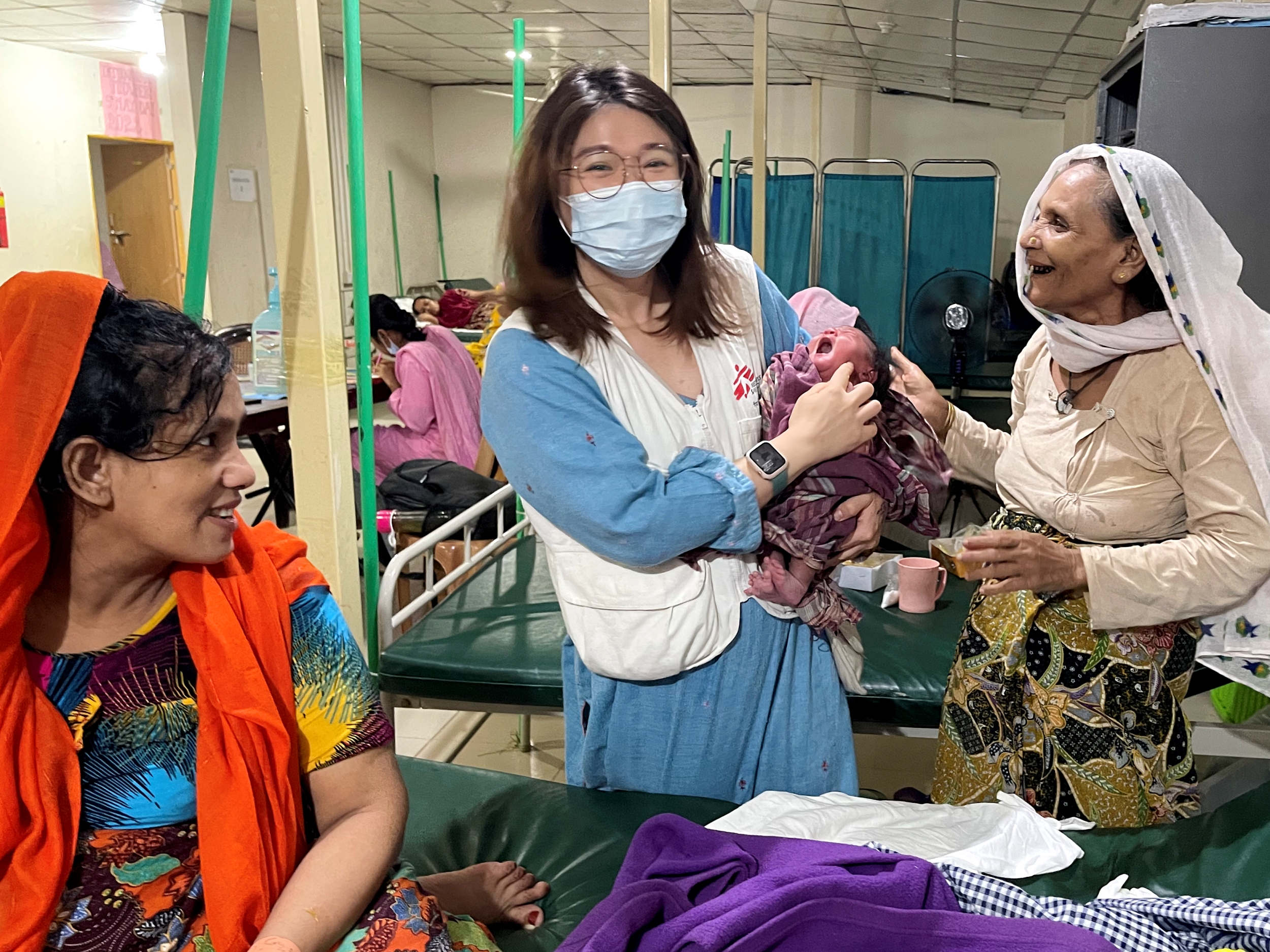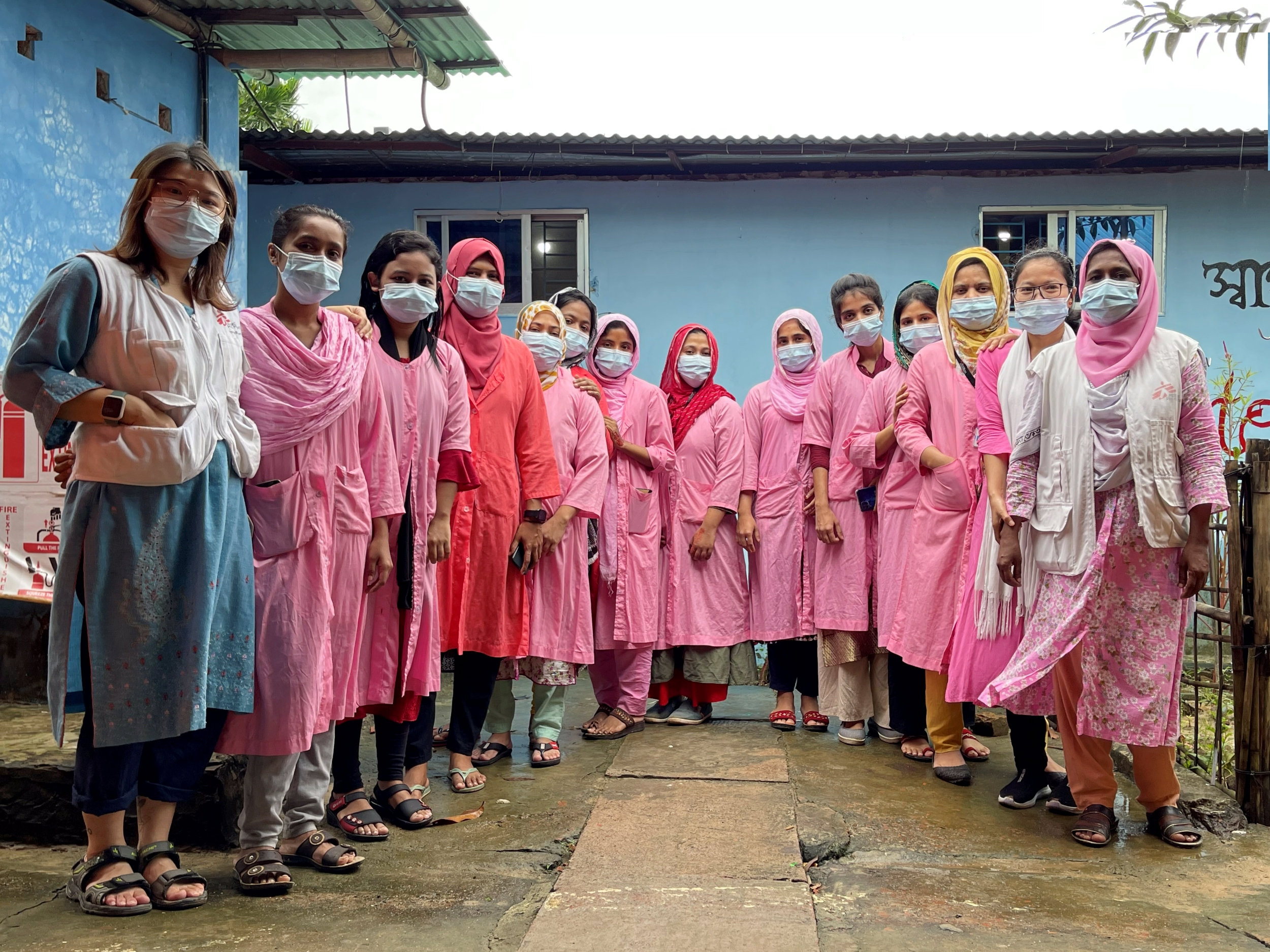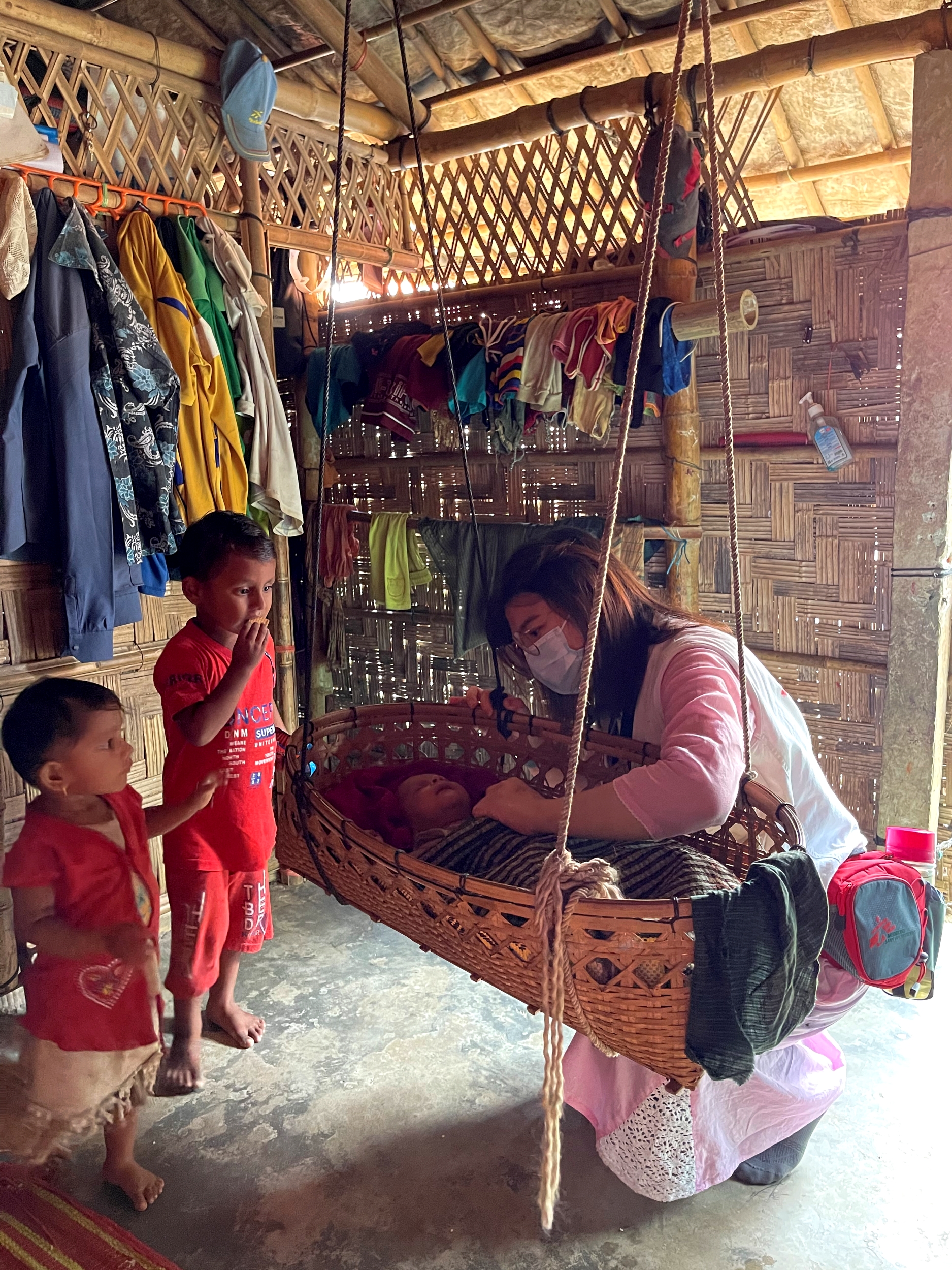Cox’s Bazar: The infinite looping of pain

A torrential rain hit as I was writing this journal (in Oct 2022), the communication system is spreading the news of a Category 6- Storm alert. Refugee camps nearby got hit by slope failure, some shelters were partially damaged. The loud noise in the evening was gunfire in the camps, and everyone seemed very used to it.
Today is my 100th day here. I would never forget the first time I stepped into the refugee camps, seeing the situation, and paying my first home visit. It felt just like yesterday.
A large number of Rohingya people came here 5 years ago. Today, there are still about 1 million people living in this refugee camp, one of the largest in the world. This area used to be a forest, having trees, elephants and all kinds of other animals and plants.
The environment and hygiene of the camp are worse than I expected. All the shabby shelters made of bamboo cramped in a packed area. There is no daily life equipment inside these structures, making it sultry and stuffy in the summer. Rohingya families live in this environment everyday coping with the stench of the sewage nearby. With the diseases hitting the area, safety issues and emotional concerns of the refugees, the situation is much more complicated and troublesome than I thought.
I am the manager of the Sexual and Reproductive Health Department of the area, in charge of the management of related activities in the “Hospital on the Hill” and Goyalmara Mother and Children Hospital, including maternity wards, in-patient and outpatient units for obstetrics and gynecology, family planning, sexual violence support and regional outreach.
Besides management, staff training and 24/7 on-call for obstetrics and gynecology wards, my daily duties also included home visits in the camp for health education and promotion.
This is an all-rounded position, handling both management and frontline tasks, along with in-house and outreach activities. It is not an easy position when you think about it.
This is my first assignment in Médecins Sans Frontières. Despite the myriads of challenges, “surprises” and learnings, I am grateful for having a great team to get through all the difficulties together.

One of the challenges here is that the home birth rate here is very high, and giving birth in refugee camp can be dangerous. Without professional midwifes and equipment, both the mother and baby could die in case of emergencies during labour, such as excessive blood loss or fetal distress. Because of that, we visited the families door-to-door to do health promotion. We noticed most of the time the paths were bumpy and difficult to get through, thus arranged ambulances and asked traditional birth attendants to help transfer the mothers to the hospital.
I also added more pain relief equipment in our hospitals, such as birth balls, to help the mothers to have natural delivery in this simple environment. On top of that, I strengthened the training for our midwife team, not only in terms of skills, but also specifically on communication and cultural sensitivity. We hope to provide better services for locals.
Sometimes I really find it quite harsh to work around the clock and to be woken up by endless emergency calls from the maternity ward. But in the past 3 months, whenever I saw the number of pregnant women who came for delivery and prenatal check-ups going up or even doubled, whenever I held the healthy and cute little newborns, and saw the smile and tears of joy from the mothers, I still felt very happy.
After another busy and breathtaking night, I asked my team “It’s been busier nowadays. How are you guys? Need some rest?” Even though the girls were covered by sweat and blood and their hair were all messed up, they would still reply to me with a cute smile, “We are good, very satisfying!”
The infinite looping of pain
Our team has always encountered many thrilling and sad scenes.
Before fleeing to Bangladesh, these Rohingya people were oppressed, killed, or their freedom was restricted by the Myanmar military government. Almost everyone had experienced or witnessed the traumatic experience of their close relatives and friends being shot, injured, or killed.
After arriving in Bangladesh and having a place for refuge, their freedom was continued to be restricted in adverse environment. They have no proofs of identity or civil rights, but the discrimination and indifference from many other people.
We visited Fatema*’s home in the refugee camp.
I still remember when she came to MSF facility a month ago, wounds were all over her arms and legs, and her left eye was swollen and inflamed. Some parts of her head were bleeding, with hair torn off and exposing parts of the scalp. Her lower body was also bleeding. She was shaking and howling, all of us felt heartbroken.
In this refugee camp with a patriarchal culture, the situation of female refugees is more difficult. Due to an emergency at home, she had to go to the far end of the camp to get clean water at a dark night, and she was sexually assaulted and violently treated on her way.
Lack of clean water sources and sexual assault are only some of the problems the refugees face every day.
When she had a miscarriage, we treated her and stopped the bleeding, and provided support on mental health counseling and family planning.
She removed her scarf when we met again today. There were still some bare parts on her scalp, but the wounds on her limbs were already much better.
Fatema’s father was whispering to us in tears. He dared not to go out because he heard gunshots in the camp recently and that knowing people would attack others with knives. The whole family could not sleep well, he showed us the psychiatric medication given by the MSF outpatient clinic that help him improve his sleep.
Seeing their helpless tears, I felt sorry and couldn’t help thinking of the term “Avici”. These living humans are suffering from the endlessly looping pain and tragedies.
If you ask them where their home is, they will answer Myanmar. If you ask them who they are, they will say “Arakan”. They were not stateless, they used to have their nationality, community and culture, their citizenship and civil rights.
Now in the refugee camp, without international recognition, they lost their citizenship and legal status. They are just waiting, undignified.
“What are you waiting for?”
“Go home. Go back to the happy home we had in Myanmar in the past, when there was no oppression.”
As refugees without legal status, they can’t even go to work or to school run by the government.
I always looked into their eyes when I was sitting in hospitals and refugee camps. Is the meaning of life just to “survive”? I wonder.

Most of us have freedom, jobs and options. However, they are trapped in the camps waiting, waiting for provision on food and water from international actors, and waiting for the Bangladeshi government to recognise their legal status.
There are many numbers and symbols in all the reports from different international organisations. They are not just some cold lifeless figures, behind every single digit is the life of a human being, the fate of a family, and even everything of a community.
Passing through rough hillside roads on our way back with all the stench and sewage, I was trying to settle myself, thinking about the difficulties as usual. Suddenly, I heard children from a nearby learning centre (no state-run schools here) laughing and singing. That’s right, there is actually hope here.
MSF is running 10 facilities in the refugee camp zone in Cox’s Bazar, and we are possibly the largest provider of free humanitarian medical assistance in the area.
We should all believe that every human being deserves the same treatment, the same respect, and the same access to medical assistance. In many of these looping tragedies, we can give our support to relieve, heal and soothe those wounds and pain.
Perhaps one day, we will have the ability and chance to put an end to all these tragedies.
*Name changed to protect patient identity





Leave a Comment